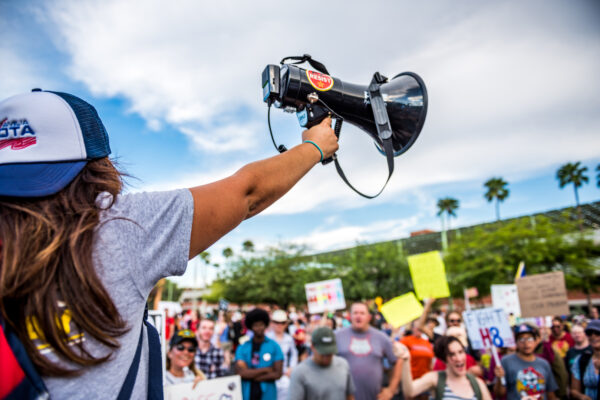Download PDF
- The precise discipline a student may face will vary by school district, so find out the regulations that govern your school specifically. These regulations are usually printed in a Student Handbook. Many of these are published online.
- If you joined a walkout during one class, look at your school district’s policies regarding “unexcused or unauthorized absences.”
The United States Constitution forbids disciplining students more harshly for politically motivated conduct than for similar, non-political behavior. Discipline must be applied equally. If students are disciplined for unexcused absences for participating in a walkout, they must be treated the same as students who miss class for any other reason. Students cannot be disciplined more harshly because of the political nature of their messages. Schools cannot impose a stricter punishment on students who walk out for a political reason than the punishment imposed on students who missed class for a doctor’s appointment, or who skipped class.
- Find out the regulations that govern unexcused absence at your school. These are usually in a Student Handbook, which may be published online.
- In some schools, parental permission can change an unexcused absence into an excused one. Parents of students charged with a disciplinary offense for participating in National School Walkout may want to send a written approval of their student’s actions and ask for the absence to be excused.
- Find out the possible punishment at your school for unexcused absence. Schools cannot exceed that punishment for students who participated in a walkout.
- Find out the regulations about the process the school is required to go through before it can discipline a student for unexcused absence. Depending on the charge, students may be entitled to a hearing before being disciplined. Check your Student Handbook for the procedure your school follows for different disciplinary charges.
- If you feel your rights have been violated, file a complaint with our office by going to laaclu.org/complaints. Make sure you select “First Amendment: Freedom of Speech or Expression” as the complaint type, and enter as much detail as you can.
Stay Informed
Sign up to be the first to hear about how to take action.
By completing this form, I agree to receive occasional emails per the terms of the ACLU’s privacy statement.
By completing this form, I agree to receive occasional emails per the terms of the ACLU’s privacy statement.

